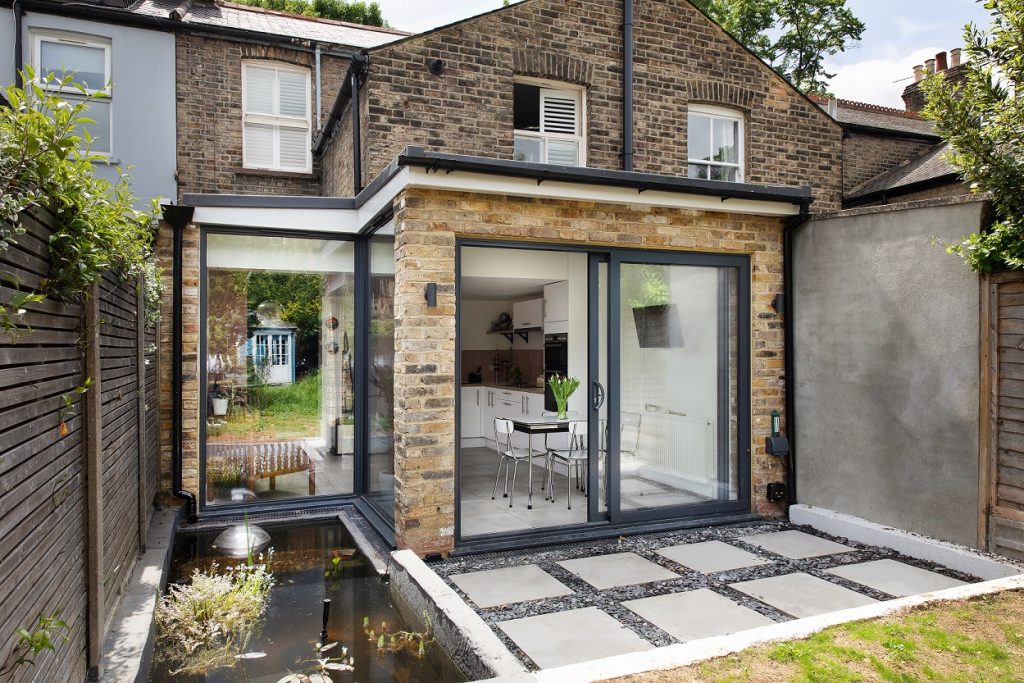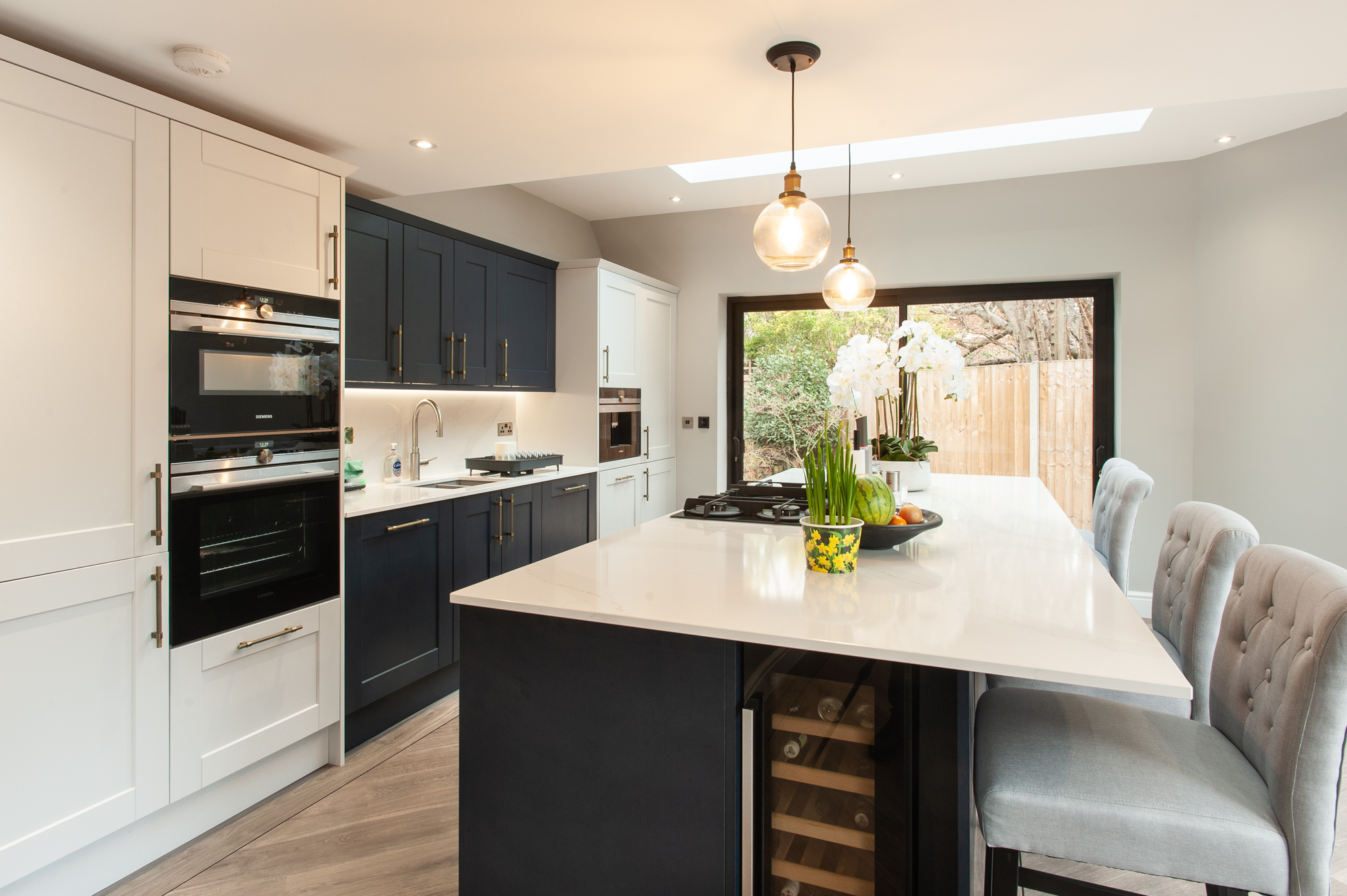Whether you are looking to extend the living space in your home or simply converting a garage, the type of roof is an important decision to make. We have weighed the pros and cons of Pitched vs flat roof extension to help you make a better decision.
A pitched roof is a traditional looking choice which is usually favoured by the official while giving planning permission as this design blends perfectly with the traditional neighbourhood house designs. However, flat roof extensions have gained popularity in recent times. They are a great and stylish option especially for the properties with height restrictions.

What is a pitched roof extension?
Pitched roofs are more traditional roof styles and have been around for many decades. Traditionally they are made out of two slopes that rise up in the centre to create a peak. Typically a pitched roof extension costs more compared to a flat roof extension as it takes more time and work to be installed.

Pros of a pitched roof extension
- Pitched roofs are very versatile and the design is recognised all over the world as they match the design of most neighbourhoods. If you’re looking for a classic look for your space, opt for a pitched roof is the way to go. However, with time the design has evolved significantly. You can achieve a more contemporary look for your extension with the two slopes rising to the side instead of the centre to create a peak. The possibilities are truly endless and a pitched roof will never disappoint.
- Regardless of where you are intending to install the roof, whether in a loft conversion or a kitchen extension, pitched roof will maximise the space significantly. This is a great way to add more storage to the space and the high ceilings give a gorgeous luxurious touch to the space.
- The design of the pitched roof is very good as it helps the rain water to drain away easily thanks to the sloping design. This helps prevent any leakage issues and it is definitely the biggest priority as in England we always have to be prepared for the rain!
- A pitched roof has a longer lifespan than a flat roof, which drives many homeowners towards it. Thanks to robust materials which are tailored for multiple weather conditions and hence provide great insulation.
- They are highly durable and with correct rooflights they can flood the room with much needed natural daylight.
Cons of a pitched roof extension
- Due to the complex design a pitched roof costs more than a flat roof. They need additional material, increased labour and time to be installed and are hence more expensive than a flat roof.

What is a flat roof extension?
Even though it is named a flat roof, the level is not 100% flat. A completely flat roof is not a permitted development; the water collects on the roof and may cause the property to age and leak. It is hardly noticeable but they have to be constructed with a pitch of slight degrees to avoid water pooling on the roof and let it drain away. A flat roof is a great idea for a small commercial property or even modern home extensions. It gives a unique, more contemporary touch to the space as compared to a pitched roof.

Pros of a flat roof extensions
- A flat roof is usually very compact and is the best fit for properties located in areas with height restrictions. They are also a suitable solution for garages and extensions. They are extremely versatile and go perfectly with residential or commercial properties.
- Even though a flat roof does not have the slope and peak of a pitched roof, they are still designed with slight slope to help the rain water drain easily.
- A flat roof is a much more cost effective option than a pitched roof as it calls for a much lower construction and labour cost and can be completed in a significantly smaller time frame.
- A flat roof looks absolutely stunning and is very aesthetically pleasing as compared to a pitched roof. If you are looking to achieve a gorgeous contemporary style for your home, a flat roof can be the best option for you.
- If you are looking to enhance the natural light a roof lantern can be added to make the room brighter and fresher.
Cons of a flat roof extension
- Flat roofs usually have a shorter lifespan than a traditional pitched roof and hence require more maintenance. Mostly the durability of a roof depends on the quality of the material used and workmanship. However, recently more robust materials are used to produce flat roofs to overcome these concerns.
Which is better: A pitched roof or a flat roof?
If you are planning a home extension, choosing the type of roof must not be the most exciting decision to make but it is certainly an important one. The decision of pitched or flat depends on several factors like the style, functionality and aesthetic you want for your home. A pitched roof will achieve a more traditional look and has much higher cost while a flat roof would give the space a contemporary look and is a cheaper option. If you are thinking of extending your space and want to decide on the type of roof that would suit your home the most, get it in touch with us and book your free initial consultation today.




